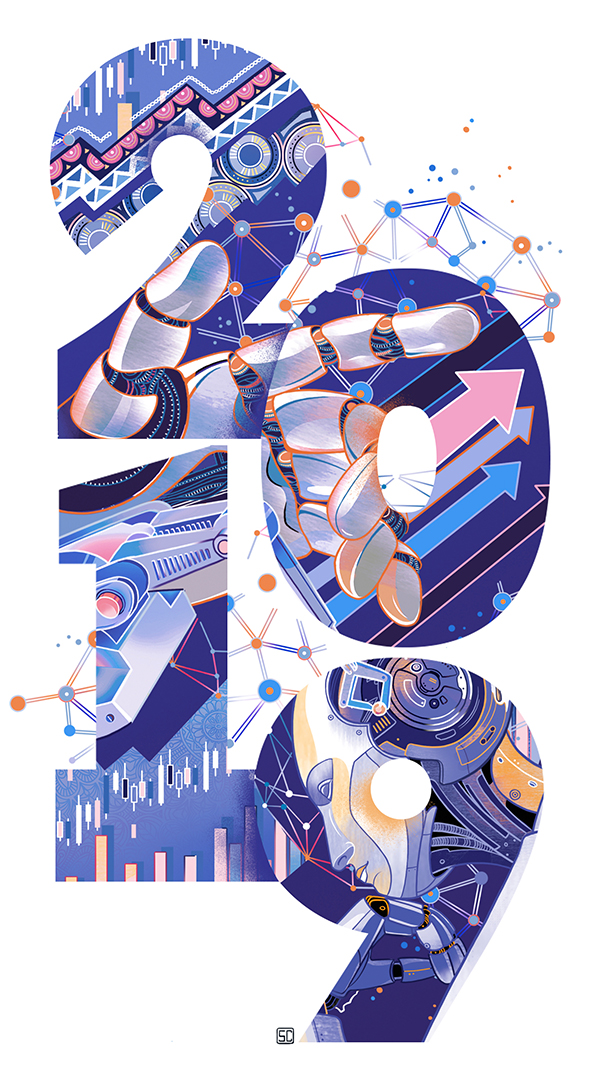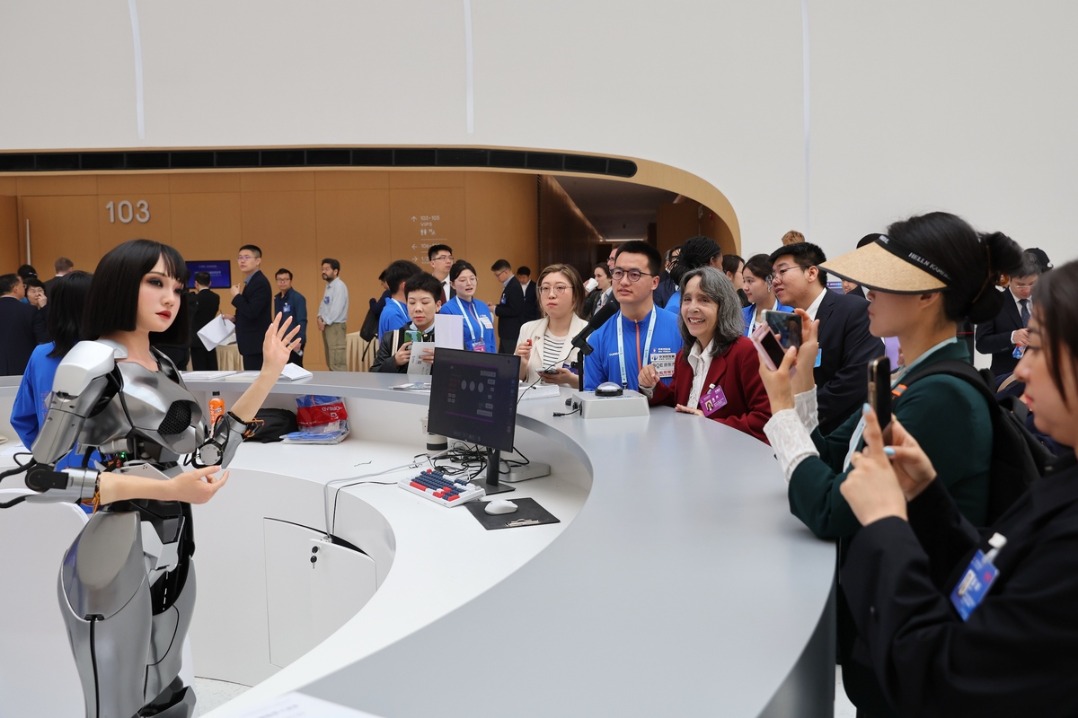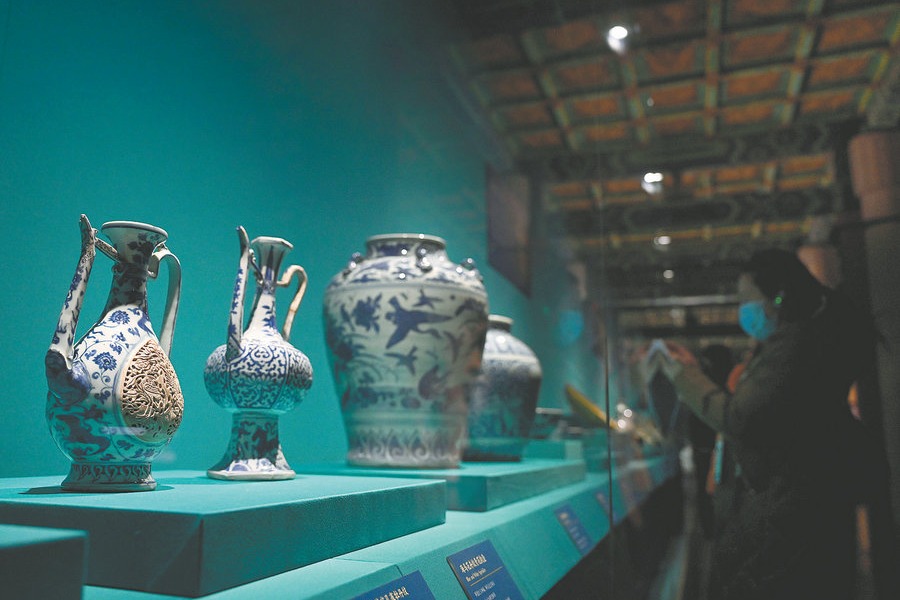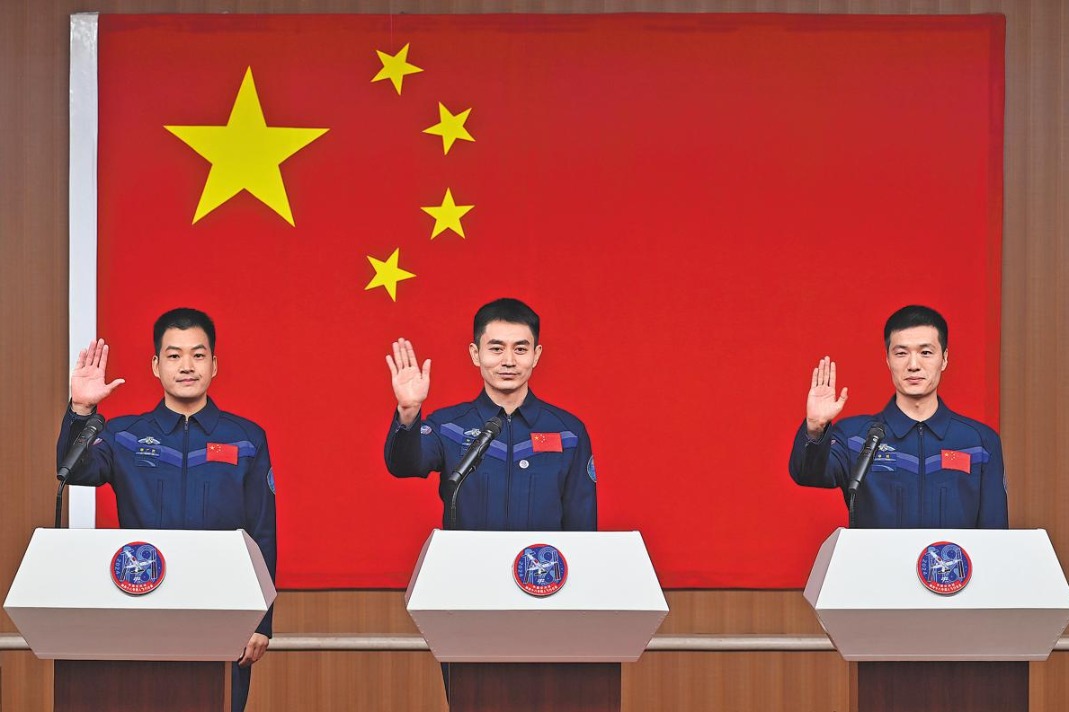Great reconstruction of global cooperation is imperative


If the "Great Disruption" of 2018 is to be overcome, the world will need a new framework for global cooperation. After World War II, the international community came together to design a set of institutional structures that facilitated collaboration in pursuit of a shared future. Now, it must do so again.
This time, however, the challenge is not just geopolitical and economic. We are experiencing a fundamental change in how individuals and societies relate to each other. And by understanding this change, we can positively influence its outcome.
Industrial revolution heralds changes
The first thing to recognize is that we are living through the Fourth Industrial Revolution (4IR) in which businesses, economies, societies, and politics are being fundamentally transformed. Since first conceptualizing the idea for the World Economic Forum's annual meeting in 2016, I have been clear: tinkering with our existing processes and institutions simply will not do. Instead, we need to redesign them so that we can capitalize on the abundance of new opportunities that await us, while avoiding the kind of disruptions that we are witnessing today. If we wait or rely on quick fixes to repair the deficiencies of outdated systems, the forces of change will naturally bypass these systems and develop their own momentum and rules.
The 4IR is already transforming our economic systems in a number of ways. For starters, the physical world is being dwarfed by a new digital, interconnected, integrated, and virtual world with a circular and shared economy. Manufacturing is being revolutionized by automation, localization, and individualization-all of which will make traditional supply chains obsolete. Competition is becoming less cost-based and is driven more by functionality and innovation. Soon, economies of scale will no longer provide the advantages they once did. The most precious resource will be talent, not traditional capital.
The 4IR is also putting unprecedented power and resources into the hands of just a few corporations. Today's leading digital firms are reshaping people's daily lives and disrupting traditional social patterns in ways a traditional business never could. From here on, the mastery of artificial intelligence (AI) and big data, and the ability to operate massive platforms through the leadership of intelligent systems, will determine both corporate and national power.
At the same time, employment and income patterns will be transformed by the diffusion of AI-driven automation. Jobs will increasingly be self-created through innovative ecosystems. Traditional labor income will be replaced by accrued returns from creative tasks, venture capital, and first-mover advantage.
Already, global economic interactions can no longer be compartmentalized into the trade of goods and services, financial transactions, and investments. All economic flows are integrated into a comprehensive system of crossborder tangible and nontangible value exchanges. Rather than taxing labor, governments will have to start taxing the platform monopolies and mechanisms of value creation that are rooted in the cloud.
Agile governance will be needed to keep pace
In the years ahead, national budgets will increasingly be strained by the outlays needed for the hard and soft infrastructure required to provide ecosystems for innovation and labor reskilling and upskilling, as well as social programs to support workers through the economic transition that is under way. A key priority must be to adapt education to the demands of the 4IR. Emphasis must be placed on nourishing creativity, critical thinking, digital literacy, and a capacity for empathy, sensitivity, and collaboration-all of which are necessary for ensuring that technology remains subordinated to our needs, rather than the other way around. Moreover, education systems will have to be geared more for lifelong learning, both through digital delivery and face-toface personalized development and coaching.
Beyond education, policymaking in general will have to adapt to the speed of change in the 4IR. New collaborative, agile governance models will have to be developed to avoid a scenario in which government policies continuously lag behind the technological frontier.
How countries respond to all of these changes will determine their future growth trajectories and positions on the world stage, to say nothing of their citizens' quality of life. As a process of borderless interconnection, the 4IR requires that national policies be integrated into a global system. Today, globalization is defined by the expansion of multilateral and bilateral trade; but in the future, it will describe the interconnectivity of national digital systems and the related flow of ideas and services.
Although many countries are still trying to catch up to the previous industrial revolutions, they should recognize that the 4IR offers unique opportunities for leapfrogging to the newest innovations. Having reaped the benefits of the First Industrial Revolution, the United Kingdom became the dominant global power in the nineteenth century. It was succeeded by the United States, which, more than any country, took ownership over the Second and Third Industrial Revolutions. These three revolutions divided the world into industrialized and developing countries, with China declining in significance after having been a leading power for many centuries.
Global balance of power redistributed
Today, the global balance of power is being redistributed again-and at incredible speed. Now that a single individual has the means to cause enormous destruction, we can no longer countenance a world divided between haves and havenots. There is thus an urgent need for global cooperation and, at a more essential and fundamental level, fresh thinking about what free, fair, and inclusive economic relations would actually look like in today's world.
We at the World Economic Forum will be starting that dialogue at our annual meeting in Davos in January 2019. As the foremost multi-stakeholder platform, the Forum has the ability and responsibility to drive this conversation forward, and, through our scientific and academic networks, to act as a catalyst for new ideas. Preparing for the 4IR will require sustained engagement and a broad consensus around actionable solutions. The Forum hopes to provide the "operating system" for this effort in the coming years, based on the conviction that, to be effective, these dialogues must be owned by all stakeholders-business, government, civil society, and the young. They must also focus on pursuing social cohesion, and, in today's fractured environment, will be most effective if driven by coordination rather than cooperation as a guiding principle.
Finally, we must recognize that these dialogues cannot be driven by a false dichotomy between global and national identities. We must embrace the individual, patriotic, and globalist identities as they exist in all of us.
After World War II, the international community laid the foundations for sustained peace, security, and prosperity. But the world has changed radically during the last seven decades, and it is time for a new approach. Only by embracing that challenge together can we shape our global future for the benefit of all.
The author is founder and executive chairman of the World Economic Forum.
Project Syndicate


































